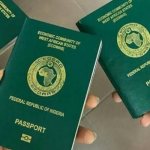The Independent National Electoral Commission and the Nigerian Correctional Service have agreed to collaborate with the National Assembly to establish a clear legal framework that would enable inmates to participate in the country’s electoral process.
INEC Chairman, Professor Mahmood Yakubu, made this known on Friday during a meeting with the management team of the NCoS led by Controller General Sylvester Nwakuche. He said the immediate focus of the electoral body is to engage lawmakers to create provisions within the law to support the voting rights of inmates.
“Our immediate task is to engage with the National Assembly for a clear legal provision on inmate voting. Thereafter, we can address the specific issues that may arise in the course of implementation,” Yakubu said.
He stressed that voting is a human right which should not be denied based solely on an individual’s incarceration, referencing electoral practices in countries such as Ghana, Kenya, and South Africa, where inmates are permitted to vote.
“As you are aware, election is a process governed by law. Working together, we can seize the opportunity of the ongoing electoral reforms for a clear legal provision that will specifically cover citizens serving time in our correctional facilities,” he added.
Yakubu also pointed to past court judgments supporting the right of inmates to vote, including a Federal High Court ruling from December 16, 2014, and a subsequent Court of Appeal decision on December 7, 2018. Both rulings upheld the voting rights of five inmates awaiting trial.
“Based on the combined provisions of Article 25 of the International Convention on Civil and Political Rights (1966) and Section 25 of the Constitution of the Federal Republic of Nigeria 1999 (as amended) on citizenship, the court affirmed the rights of plaintiffs who were inmates awaiting trial to vote in elections.
“However, the judges ruled that the right to vote is only excisable when asserted as it is a choice to be exercised voluntarily by a citizen and not a duty to be imposed by force of authority,” he said.
He further recalled earlier engagements with the correctional service to explore the logistics of facilitating inmate voting, such as registration processes, polling unit creation, and voter education within custodial facilities.
“You may recall that in recognition of this situation, the Commission had several discussions with the correctional service on how inmates who wish to register and vote in elections can do so. We even set up a joint technical committee to review all the issues involved and advise on the way forward.
“You availed us of data on the locations and types of federal correctional facilities nationwide. You also provided us with statistics on the various categories of inmates, the majority of whom are on remand awaiting trial and who may actually be registered voters.
“For our part, we raised the issue of access to the correctional facilities for voter registration, creation of polling units and voter education. On behalf of stakeholders and for transparency, we also brought to your attention concerns about access to your facilities for observers and the media. Political parties also want to know if they will be allowed to campaign in the correctional facilities and appoint polling agents on election day. We believe that working together with you and the stakeholders, we can address these concerns,” he explained.
He added that clarifying Section 12(1)(e) of the Electoral Act 2022—which deals with who is qualified to register to vote—would be essential in the process.
“Doing so will also clarify the provision of Section 12(1)[e] of the Electoral Act 2022 on voter registration, a precondition for voting in elections, which restricts the exercise to a Nigerian citizen who ‘is not subject to any legal incapacity to vote under any law, rule or regulations in force in Nigeria.’ There are various interpretations as to whether this provision relates to inmate on death row, those serving life sentence or those convicted for treason,” Yakubu said.
In his remarks, Controller General Nwakuche reiterated the importance of granting voting rights to inmates. He highlighted that over 81,000 inmates across 257 custodial centres remain disenfranchised, with 66 percent of them awaiting trial.
He also pointed to court rulings that support the right of inmates to vote, emphasizing the need to act on these legal precedents to ensure inclusivity in the democratic process.











